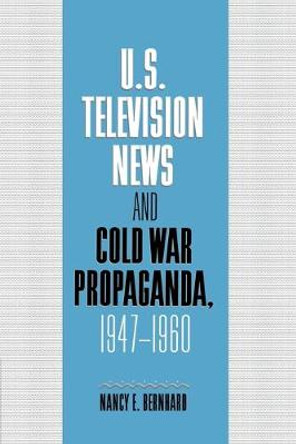Description
About the Author
John Jenks is Associate Professor in the Department of Communication Arts and Sciences at Dominican University, USA
Reviews
This book makes a valuable, empirically rich contribution to studies of the media and the state in the United Kingdom. It illustrates the sheer effort put into manipulating editors, journalists, broadcasters, politicians, and academics by the British state after 1945... He demonstrates with skill and conviction just how important setting the agenda was to the British state in this period, and it is a point that has continued significance for understanding relations between the state and the media since 1945. -- Thomas P. O'Malley H-Net John Jenks's excellent monograph shows, with considerable nuance, the extension of the state's projection of British interests and values into peacetime! Jenks's great contribution is the painstaking documentation, in an eloquent and concise telling, of an important story. He makes accessible previously unexamined archival sources (in both Britain and the US) and sets these neatly alongside brief but effective samplings of British postwar media! an important study that will be of great interest to historians of British politics, the Cold War and 20th-century international relations, and to media scholars. -- Mark Hampton, Lingnan University European Journal of Communication Patriotism, imperialism, and structural trends in journalism inform Jenks's compelling application of Gramscian theory to the Cold War's early years. Conditioned to an 'almost reflexive deference to government-defined security concerns' by their second world war experience, patriotic British journalists accepted 'without a murmur' the continuance of the wartime D-Notice Committee and Official Secrets Act. -- Michael E. Chapman Journal of Contemporary History This book makes a valuable, empirically rich contribution to studies of the media and the state in the United Kingdom. It illustrates the sheer effort put into manipulating editors, journalists, broadcasters, politicians, and academics by the British state after 1945... He demonstrates with skill and conviction just how important setting the agenda was to the British state in this period, and it is a point that has continued significance for understanding relations between the state and the media since 1945. John Jenks's excellent monograph shows, with considerable nuance, the extension of the state's projection of British interests and values into peacetime! Jenks's great contribution is the painstaking documentation, in an eloquent and concise telling, of an important story. He makes accessible previously unexamined archival sources (in both Britain and the US) and sets these neatly alongside brief but effective samplings of British postwar media! an important study that will be of great interest to historians of British politics, the Cold War and 20th-century international relations, and to media scholars. Patriotism, imperialism, and structural trends in journalism inform Jenks's compelling application of Gramscian theory to the Cold War's early years. Conditioned to an 'almost reflexive deference to government-defined security concerns' by their second world war experience, patriotic British journalists accepted 'without a murmur' the continuance of the wartime D-Notice Committee and Official Secrets Act.
Book Information
ISBN 9780748623143
Author John Jenks
Format Hardback
Page Count 176
Imprint Edinburgh University Press
Publisher Edinburgh University Press
Weight(grams) 414g
Dimensions(mm) 234mm * 156mm * 24mm









